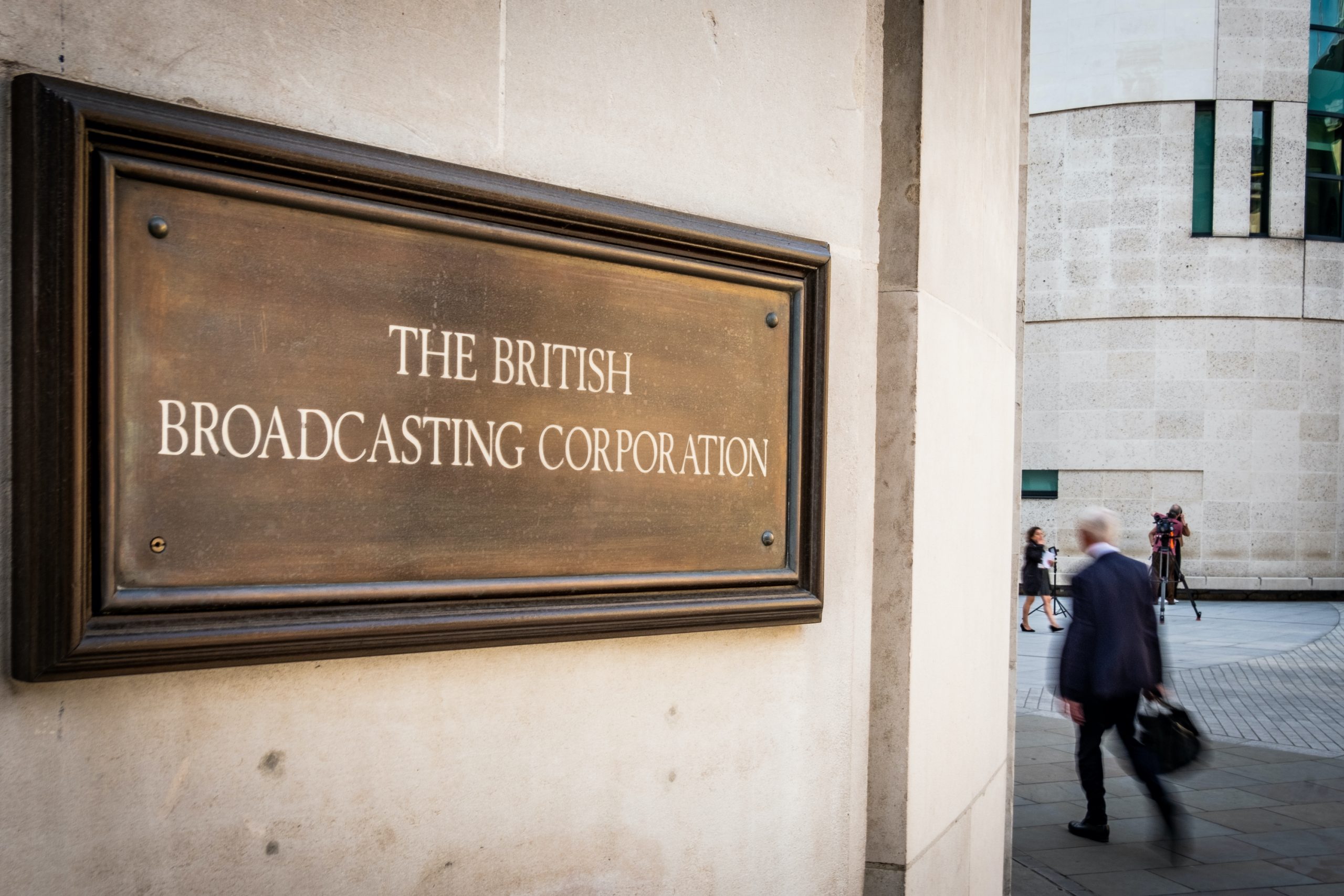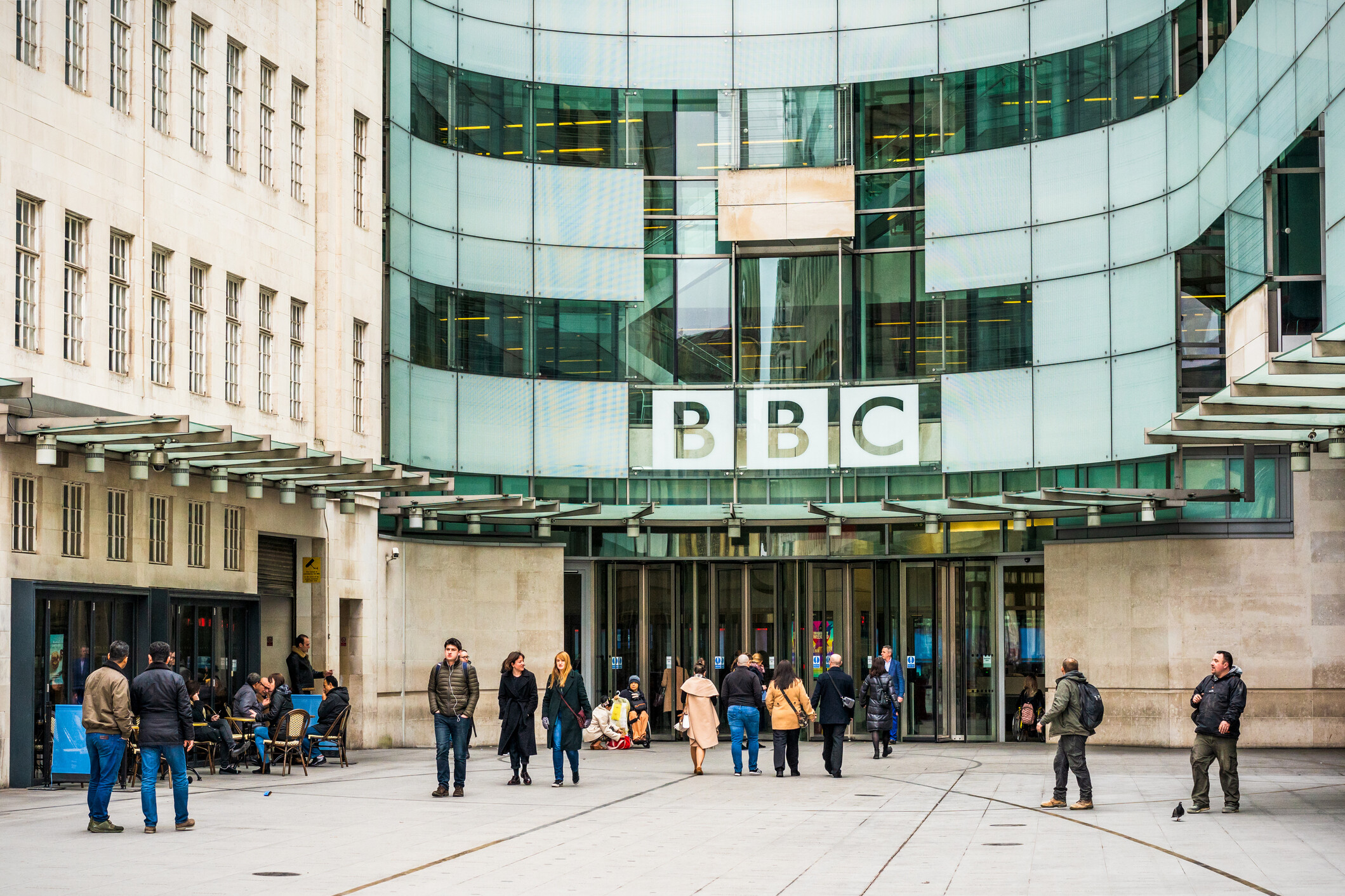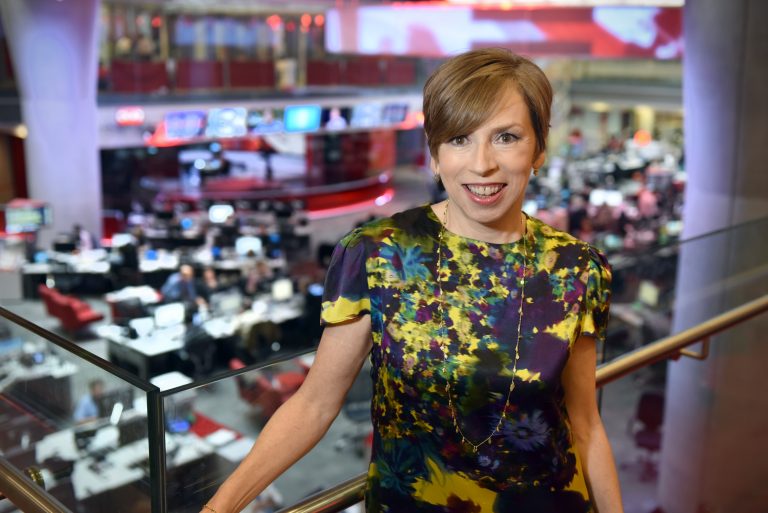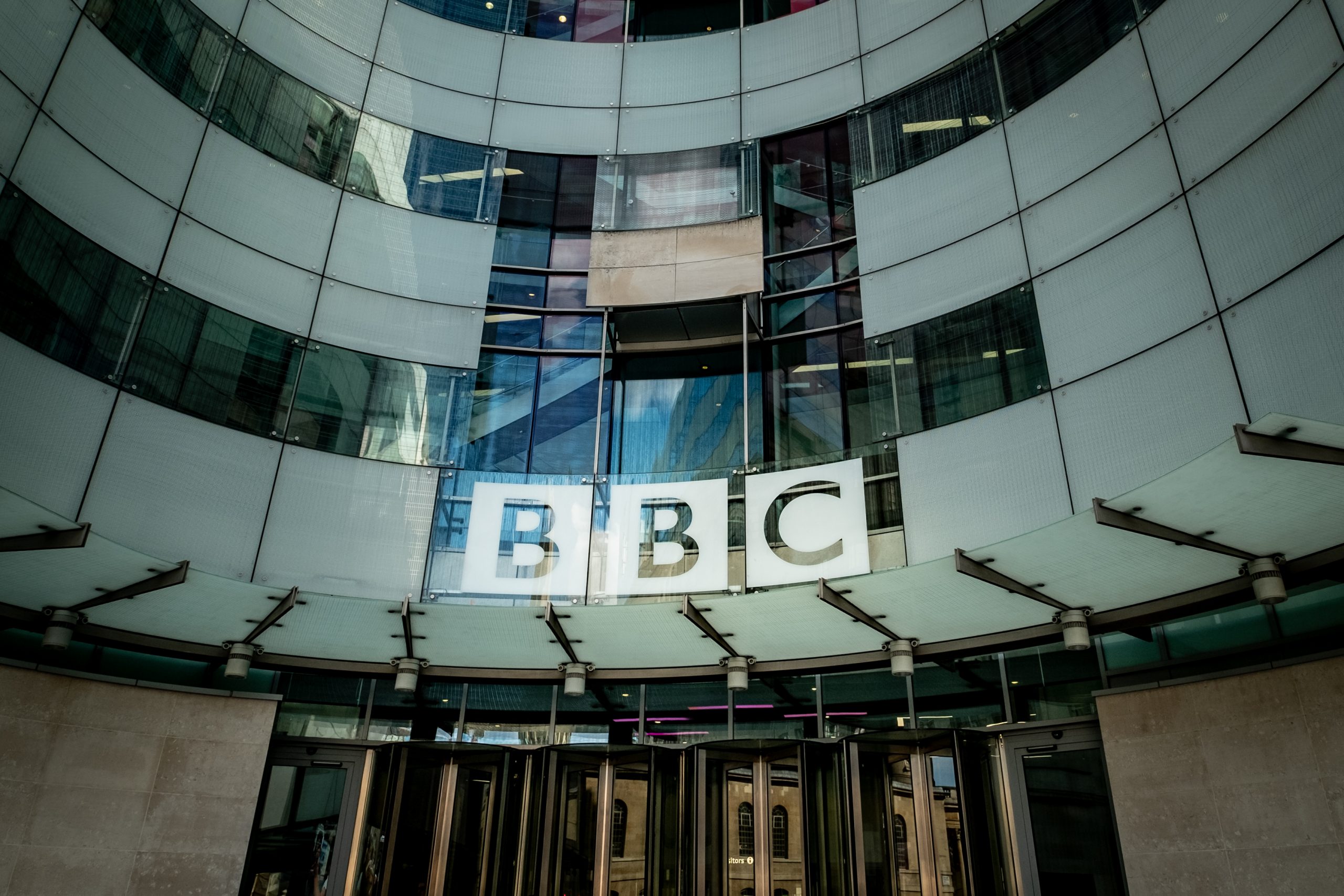100 years of the BBC
11 January 2022
A century since the world’s first public service broadcaster was created, the BBC is going all-out to mark its anniversary. But as it does so, it is contending with an uncertain future, and question marks hang over the licence fee, the cord that links it directly to the public.

The BBC of 100 years ago was a very different organisation to the one it is now. It could hardly be defined as public media: it was called the British Broadcasting Company, having been created by “a group of leading wireless manufacturers”. In January 1927 the Company became the Corporation and had its public service principles enshrined in its Royal Charter.
But from its conception, the BBC under its first Director-General, Lord John Reith, emblemised a pioneering and innovative spirit, at the forefront of technological progress, striving to inform, educate and entertain its audience. It was this spirit that the current Director-General, Tim Davie, reflected on in his recent editorial in The Sunday Times. “Today, as we follow in Reith’s footsteps, our focus is again on innovation and reforming the BBC to ensure it can keep delivering value to audiences in this new world.”
Innovation, Mr Davie argued, has been a hallmark of the BBC for its entire history, from its first foray into football commentary on the radio in 1927, to the world’s first regularly scheduled television service in 1936; from embracing the internet as a vehicle for reaching new audiences in 1997, to the launch of an online catch-up service, BBC iPlayer, in 2007. “Our role as an organisation solely serving the public has allowed us to take the risks on which innovation in the market depends,” he said.
Yet public media worldwide is facing myriad threats. Many public media organisations are threatened by financial difficulties; governments too often encroach upon the independence of public media and its editorial autonomy; public media journalists are facing threats to their safety and wellbeing online and in person; and in a media landscape now dictated by digital platforms (Facebook, Twitter etc.) and dominated by globalised streaming services (Netflix, Amazon etc.), public media faces an enormous challenge to remain prevalent, relevant, and to continue to demonstrate its value to the paying public.
Under such gloomy circumstances, the BBC’s century is a cause for celebration. Reflecting on a century of service affirms the mission of public media and provides evidence of the necessity and benefits of public media to democratic society. For 100 years, the BBC has been a cornerstone of British democracy and shaped the nation’s cultural identity. It has for ten decades informed, entertained, and educated its audience – online, on radio, and on television. And it has been a model which other public media organisations around the world have looked to and replicated. Many still do.
But the BBC is also facing many of the challenges which its global contemporaries are also experiencing. The licence fee – the foundation of the relationship between public and public media, and the fundamental instrument that maintains public media’s independence from the state – is very much under debate. Journalists are being attacked for their profession both online and in-person. And more than ever, the BBC is having to prove its value to an at-times sceptical government, some hostile sections of the independent media, and a younger generation who need to be reached in different ways.
It would be naïve to suggest the BBC has not encountered difficulties before. “[The BBC] has survived crisis, conflict and changing technology,” Mr Davie said. “In almost every decade, it has been written off, debated and loved. More than anything, its survival is down to the extraordinary people at the BBC who care deeply about the power of truth and great storytelling.”

Now, in an increasingly globalised and commercialised media landscape, a key value is in the products the BBC creates which can then be marketed and sold internationally. And the centenary is a chance for the BBC to demonstrate the UK’s creative talents: a final series of Peaky Blinders, the landmark nature series The Green Planet, and some as-yet unannounced special centenary programming. “[A]bove all it will be a year-long celebration of the UK as a world-leading creative power,” the Director-General argued.
His comments on how innovation will help the BBC demonstrate its value are particularly illuminating. “We must create compelling digital services, attract the very best talent from every walk of life, understand where the BBC adds value and listen (not just broadcast) to all licence-fee-payers.” It is a statement which recognises the BBC’s uncertain future, but also points to the future direction of travel for the BBC to demonstrate its value, thereby ensuring its sustainability, viability, and longevity.
The world’s first public media organisation has continuously adapted to be relevant to the public it serves. It has done this by embracing and experimenting with new technologies. And it is clear that for the BBC to keep its central place in UK cultural and democratic life, it must continue to do so. “Our centenary year will be spent not looking back,” Mr Davie said, “but looking forward.”
Related Posts
16th June 2021
PMA condemns the harassment of BBC journalist at anti-lockdown protest in London
It is critical to democracy that…
25th May 2021
Dyson Report | The BBC’s independence must not be undermined because of historic failings
Like many other current and former BBC…


